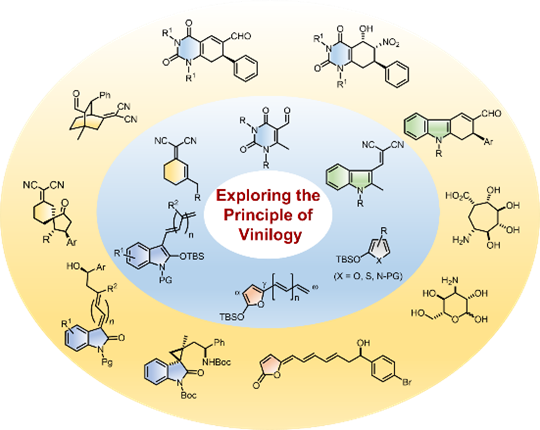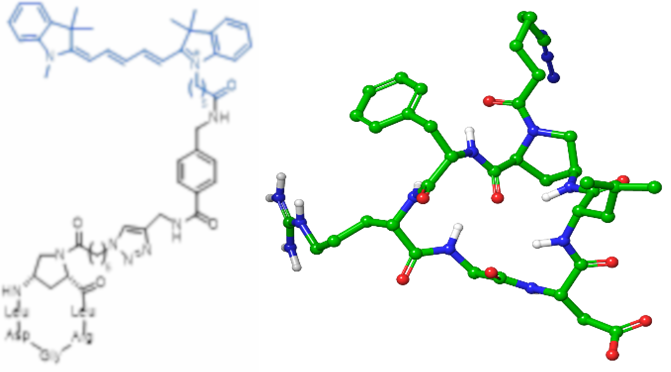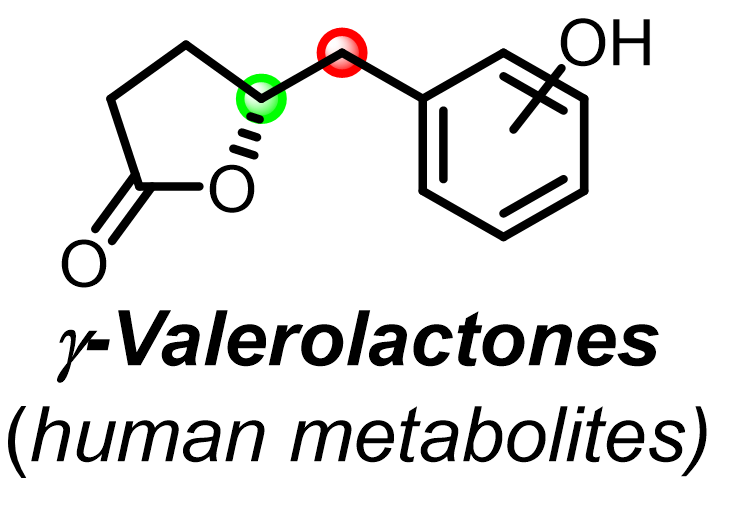Design and synthesis of bioactive compounds
- QSAR, molecular modeling and pharmacoinformatics.
- Design and synthesis of compounds modulating the kynurenine pathway and tryptophan degradation.
- Design and synthesis of compounds acting on lipid signaling, with focus on endocannabinoids and related substances.
- New methods in asymmetric synthesis and exploration of the reactivity of heterocyclic platforms for the preparation of bioactive compounds.
- Characterization of metabolic and chemical reactivity of bioactive compounds through bio-analytical methods.
- Design and synthesis of compounds interfering with the Eph-Ephrin system.
- Design and synthesis of bioactive compounds, interacting with enzymes, membrane or nuclear receptors or protein-protein interfaces.
- Development of general procedures for simulating and predicting the enzymatic reactions with xenobiotics.
- Lipidomics and sphingolipidomics.
- Design and synthesis of adjuvant molecules to enhance antibacterial activity, aimed at combating antimicrobial resistance.
- Design and synthesis of molecules with antitubercular activity using target-based and ligand-based strategies.
- Design and synthesis of peptides and peptidomimetics with antibacterial and antimycobacterial activity.
- Proteomic and metabolomic studies on extracts from natural matrices, evaluating antibiotic and antibiofilm activities.
- Design and synthesis of PLP-dependent enzyme ligands for the treatment of rare diseases.
- Design and synthesis of new broad-spectrum antivirals acting on viral, cellular or multiple targets.
- Design and synthesis of new molecules for the treatment of Cystic Fibrosis.
- Design and synthesis of new antibacterials.
- Design and synthesis of new PCSK9 inhibitors for the treatment of cardiovascular, infectious and neurodegenerative diseases.
- Development of new green methodologies for the synthesis of pharmacologically active molecules.



